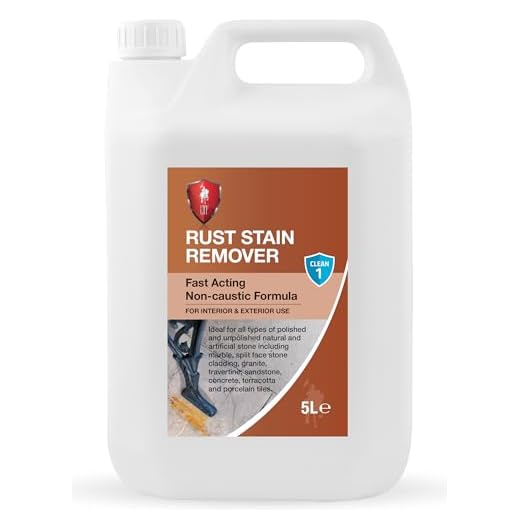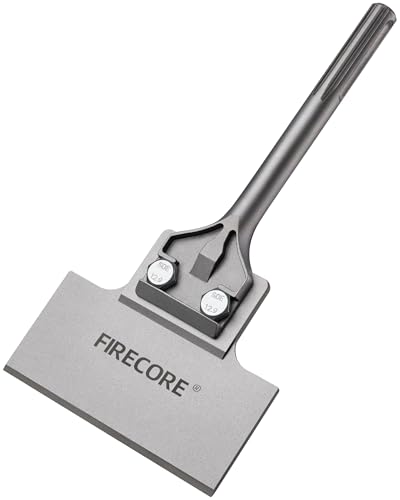




Rust stains on plastic can be unsightly and difficult to remove. Whether it’s a plastic patio furniture or a plastic container, seeing rust stains can be frustrating. Thankfully, there are effective methods to remove rust stains from plastic, and in this article, we will explore some proven techniques.
One of the simplest and most effective methods is to use a mixture of lemon juice and salt. Lemon juice is a natural acid that can help dissolve rust, while salt acts as an abrasive to scrub away the stain. Simply mix equal parts lemon juice and salt to form a paste, then apply it to the rust stain and scrub gently with a sponge or cloth. Rinse thoroughly with water and repeat if necessary.
If the lemon juice and salt method doesn’t do the trick, you can try using white vinegar and baking soda. White vinegar is an acidic liquid that can break down rust, while baking soda is a mild abrasive that can help scrub away the stain. Mix equal parts white vinegar and baking soda to form a paste, then apply it to the rust stain and scrub gently. Rinse with water and repeat if needed.
For tougher rust stains, you can use a commercial rust remover specifically designed for plastic surfaces. These rust removers often contain chemicals that can effectively dissolve and remove rust stains. Follow the instructions on the product carefully and take necessary safety precautions.
In conclusion, rust stains on plastic can be removed using various methods. The lemon juice and salt method, white vinegar and baking soda, and commercial rust removers are all proven techniques to effectively remove rust stains from plastic. Remember to always rinse thoroughly with water and test any method on a small, inconspicuous area first to avoid damaging the plastic surface.
Effective Methods to Remove Rust Stains from Plastic: Proven Techniques
1. Lemon Juice
One effective method to remove rust stains from plastic is to use lemon juice. Lemon juice contains natural acids that can help dissolve rust. Here’s how to do it:
- Squeeze fresh lemon juice onto the rust stain.
- Leave it on for a few minutes to allow the acid to work on the rust.
- Gently scrub the stain with a soft cloth or sponge.
- Rinse the plastic with water.
2. Baking Soda
Baking soda is another effective solution for removing rust stains from plastic. It acts as a mild abrasive that can help lift the rust off the surface. Follow these steps:
- Mix baking soda with water to create a paste.
- Apply the paste to the rust stain.
- Let it sit for a few minutes.
- Gently scrub the stain with a soft brush or sponge.
- Rinse the plastic thoroughly.
3. Vinegar
Vinegar is a versatile household ingredient that is effective in removing rust stains. Its acetic acid content helps dissolve rust. Here’s what to do:
- Soak the plastic item in vinegar for a few hours.
- Scrub the rust stain gently with a soft brush or sponge.
- Rinse the plastic well after removing the stain.
4. Commercial Rust Removers
If the above methods don’t work, you can try using commercial rust removers. These products are designed specifically to remove rust stains and are available in most hardware stores. Follow the instructions provided on the product for optimal results.
5. Preventive Measures
To prevent rust stains from forming on plastic surfaces in the future, consider taking these preventive measures:
- Avoid placing metal objects directly on plastic surfaces.
- Use mats or coasters to protect plastic surfaces from metal objects.
- Regularly clean and dry plastic items to prevent rust from forming.
By following these effective methods and preventive measures, you can easily remove rust stains from plastic and keep your items looking clean and rust-free.
Removing Rust Stains with Vinegar
Vinegar is a versatile ingredient that can be used for various cleaning purposes, including removing rust stains from plastic. It is a natural and affordable option that can effectively eliminate rust stains without causing any damage to the plastic surface.
Here is a step-by-step guide on how to remove rust stains with vinegar:
- Prepare a solution by mixing equal parts of white vinegar and water. For example, you can mix half a cup of vinegar with half a cup of water.
- Apply the vinegar solution directly onto the rust stain. You can use a spray bottle or a clean cloth soaked in the solution.
- Let the vinegar solution sit on the rust stain for about 10 to 15 minutes. This will allow the acidity of the vinegar to break down the rust.
- Using a scrub brush or a sponge, gently scrub the stained area in circular motions. The abrasive action will help loosen the rust particles from the plastic surface.
- Rinse the plastic item thoroughly with clean water to remove any remaining vinegar residue.
- Dry the plastic item completely to prevent any moisture from causing further rust formation.
Note: If the rust stain persists after the first attempt, you can repeat the process or try soaking the plastic item in the vinegar solution for a longer period of time.
Caution: When using vinegar to remove rust stains, it is important to test it on a small, inconspicuous area of the plastic surface first to ensure that it does not cause any damage or discoloration.
In conclusion, vinegar is a simple and effective solution for removing rust stains from plastic. Make sure to follow the steps mentioned above and exercise caution to restore the original appearance of your plastic items.
Using Lemon Juice to Eliminate Rust Stains
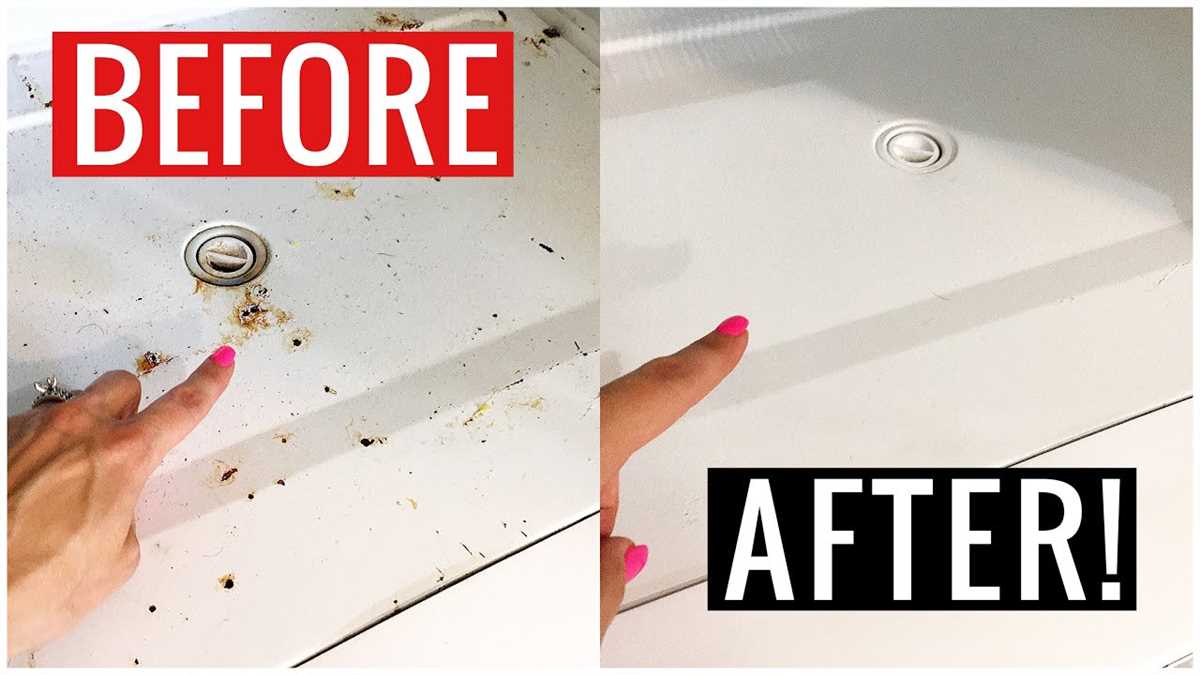
Lemon juice is a natural and effective remedy for removing rust stains from plastic. The citric acid in lemon juice helps to break down and dissolve the rust, making it easier to remove.
Materials Needed:
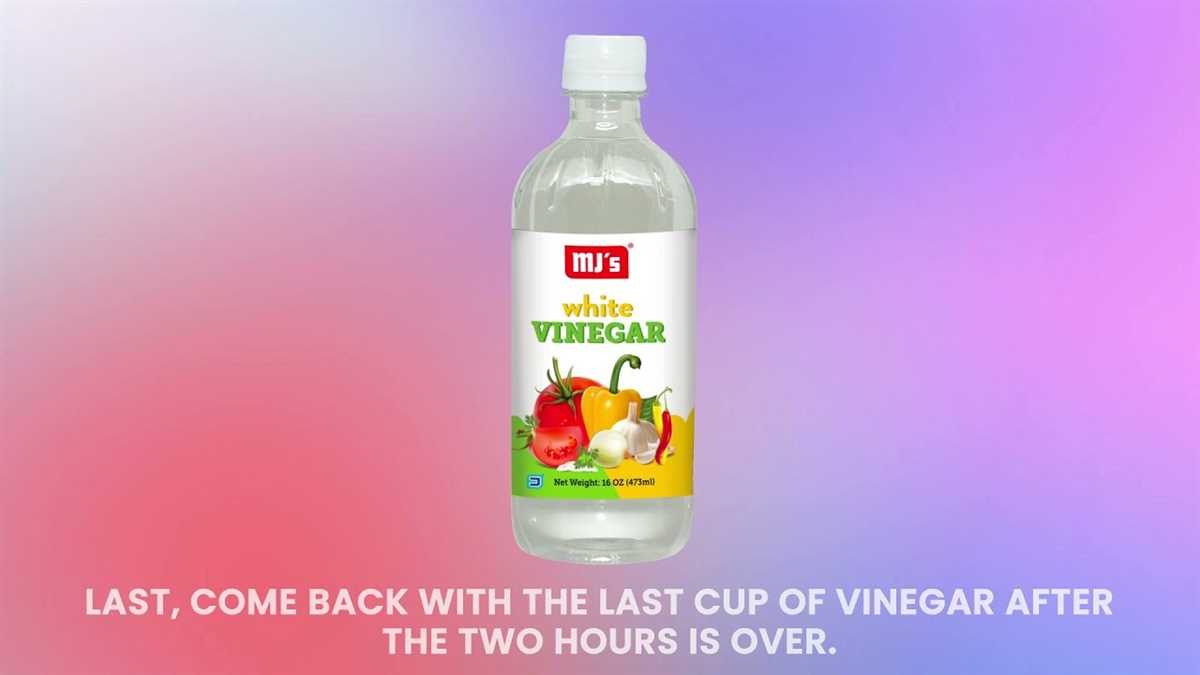
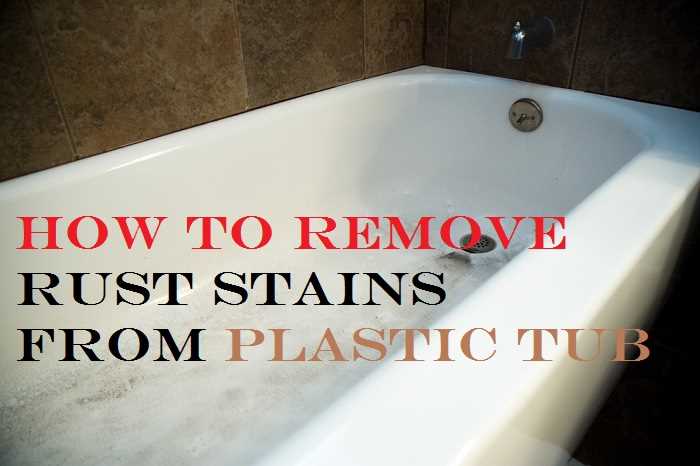
- Lemon juice
- Water
- A soft cloth or sponge
Instructions:
- Mix equal parts lemon juice and water in a bowl or container.
- Dip the cloth or sponge into the lemon juice mixture.
- Gently scrub the rust stain with the lemon juice-soaked cloth or sponge. Apply more pressure if needed.
- Continue scrubbing until the rust stain begins to fade.
- Rinse the plastic surface with water to remove any remaining lemon juice.
- Dry the plastic surface with a clean cloth.
Note: Lemon juice may not completely remove severe rust stains, but it can help to lighten them. If the stain is persistent, you may need to try other methods or seek professional help.
Tips:
- For better results, you can leave the lemon juice mixture on the rust stain for a few minutes before scrubbing.
- You can also try using a lemon wedge directly on the rust stain for more concentrated cleaning.
- Protect your hands by wearing rubber gloves while handling lemon juice.
| Step | Actions |
|---|---|
| 1 | Mix equal parts lemon juice and water. |
| 2 | Dip cloth or sponge into the lemon juice mixture. |
| 3 | Scrub rust stain with the lemon juice-soaked cloth or sponge. |
| 4 | Rinse plastic surface with water. |
| 5 | Dry plastic surface with a clean cloth. |
Removing Rust with Baking Soda Paste
If you have plastic items that are affected by rust stains, one effective method to remove them is by using a baking soda paste. Baking soda, also known as sodium bicarbonate, has mild abrasive properties that can help lift off the rust stains without damaging the plastic surface.
Materials Needed:
- Baking soda
- Water
- Bowl
- Soft cloth or sponge
Steps to Remove Rust with Baking Soda Paste:
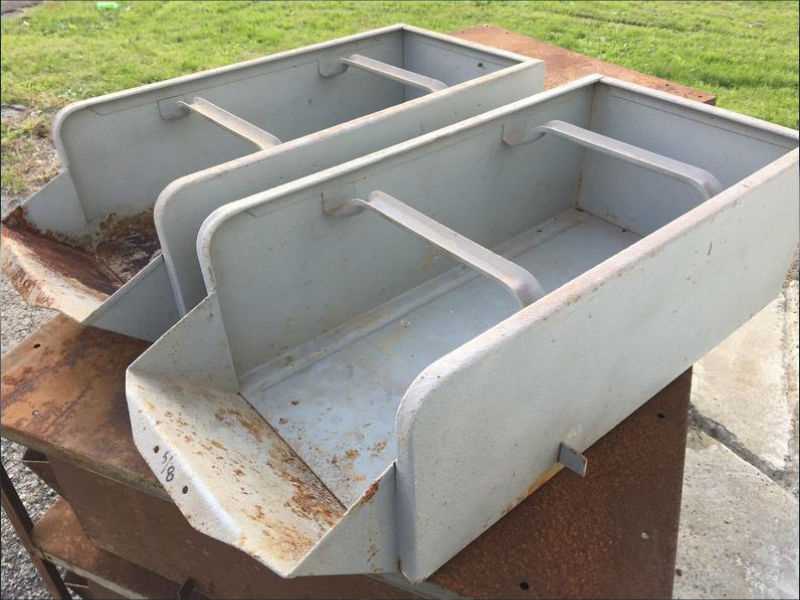
- In a bowl, mix baking soda with enough water to create a thick paste.
- Apply the baking soda paste directly onto the rust-stained plastic item.
- Gently scrub the rust stains using a soft cloth or sponge. Make sure to apply moderate pressure to avoid scratching the plastic surface.
- Continue scrubbing until the rust stains start to fade away.
- Rinse the plastic item with clean water to remove any residue from the baking soda paste.
- Dry the item thoroughly with a clean cloth.
Note: This method may require multiple applications depending on the severity of the rust stains. If the stains persist, you can repeat the process or try alternative methods.
Prevention Tips:
- Protect plastic items from exposure to moisture and metal objects to prevent rust stains.
- Store plastic items in dry and well-ventilated areas.
- Regularly clean and inspect plastic items for any signs of rust stains.
- Apply a protective coating or sealant to plastic items to minimize the risk of rust stains.
By following these steps and prevention tips, you can effectively remove rust stains from plastic using a baking soda paste. It is an affordable and easily accessible method that can restore the appearance of your plastic items.
However, it is important to note that not all types of plastic may be suitable for this method. It is recommended to test the baking soda paste on a small, inconspicuous area of the plastic item before applying it to the rust stains.
Removing Rust Stains with Oxalic Acid
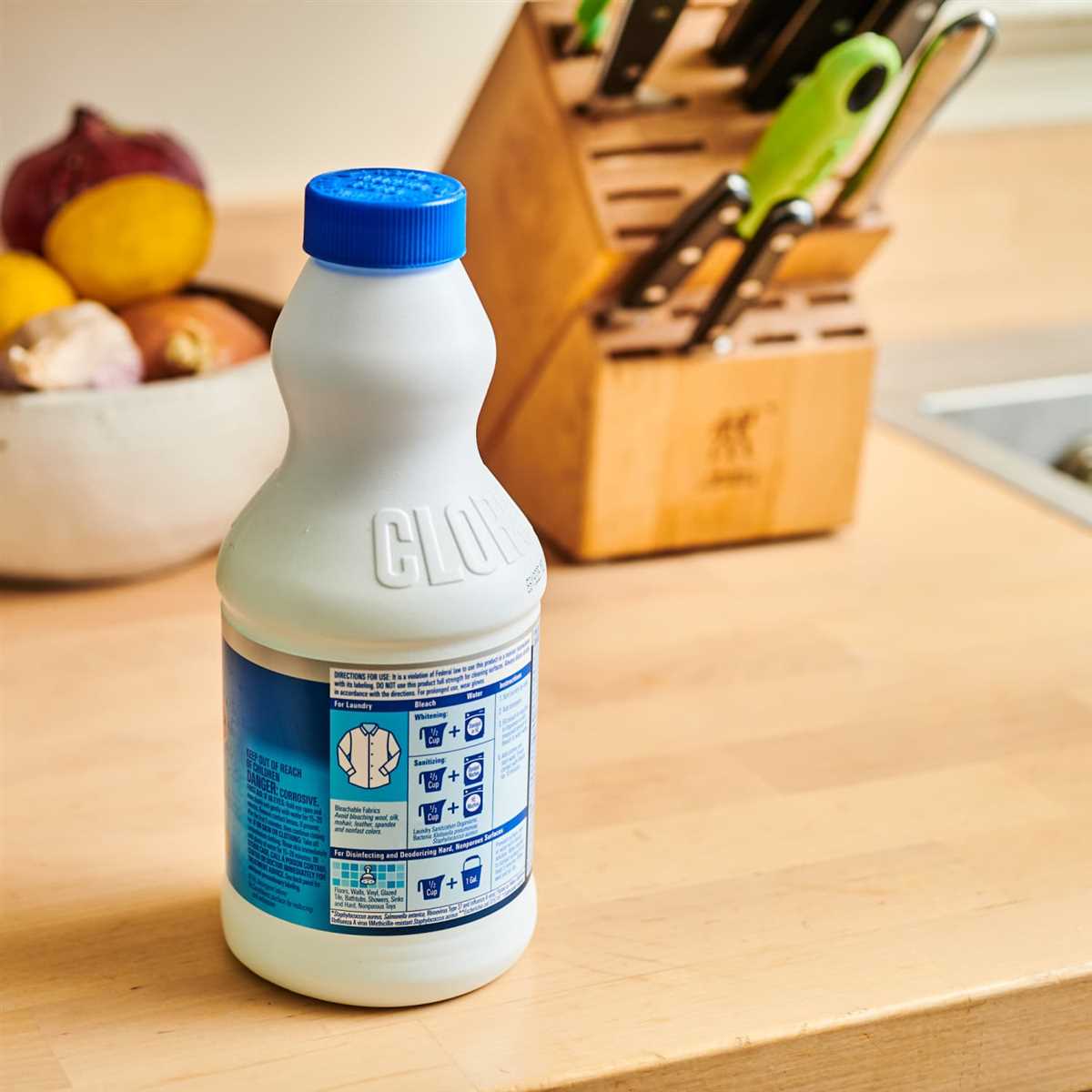
Oxalic acid is a powerful and effective chemical that can be used to remove rust stains from plastic surfaces. It works by breaking down the rust particles and dissolving them, making it easier to wipe away the stains. Follow these steps to effectively remove rust stains with oxalic acid:
- Start by gathering the necessary materials, including oxalic acid powder, water, a clean cloth, and gloves to protect your hands.
- Prepare a solution by mixing a small amount of oxalic acid powder with water. Follow the instructions on the packaging for the recommended concentration.
- Put on your protective gloves to avoid direct contact with the oxalic acid solution.
- Apply the oxalic acid solution to the rust stains on the plastic surface. Use a clean cloth or sponge to gently rub the solution onto the stains.
- Allow the solution to sit on the stains for a few minutes, giving it time to penetrate and dissolve the rust particles.
- After the solution has had time to work, use a clean cloth or sponge to wipe away the stains. Rinse the area with water to remove any residue.
- Inspect the plastic surface to ensure that all rust stains have been effectively removed. If any stains remain, repeat the process.
It’s important to note that oxalic acid can be a strong chemical, so it’s crucial to follow safety precautions and use it in a well-ventilated area. Additionally, avoid using oxalic acid on delicate or sensitive plastic surfaces, as it may cause damage. Always test the solution on a small, inconspicuous area before applying it to the entire surface.
| Advantages | Disadvantages |
|---|---|
|
|
By using oxalic acid, you can effectively remove rust stains from plastic surfaces. Follow the provided steps and take the necessary precautions for safe and successful stain removal.
Eliminating Rust Stains with Commercial Rust Removers
Commercial rust removers are an effective solution for eliminating rust stains from plastic surfaces. These specialized products are specifically designed to break down rust and remove it from various materials, including plastic. Here are some popular commercial rust removers that can help you tackle rust stains on plastic:
- Oxalic Acid: This is a commonly used rust remover that works well on plastic surfaces. It can be purchased in powder or liquid form. To use, mix the powder or liquid with water according to the instructions provided, and apply it to the rust stain. Allow it to sit for a few minutes, then scrub gently with a soft brush or sponge. Rinse thoroughly with water.
- Phosphoric Acid: Another effective rust remover is phosphoric acid. It is available in various forms, such as gels, sprays, and liquids. Apply the product directly to the rust stain and allow it to sit for the recommended amount of time. Then, scrub the stain gently with a soft brush or sponge. Rinse thoroughly with water once the stain is removed.
- Rust Converter: Rust converter is a unique type of rust remover that not only removes rust but also converts it into a stable compound, preventing further rusting. It is available in liquid form. Apply the rust converter directly to the rust stain and allow it to sit for the recommended amount of time. Once the rust has converted, scrub the area gently with a soft brush or sponge. Rinse thoroughly with water to remove any residue.
When using commercial rust removers, it is important to carefully follow the instructions provided by the manufacturer. Protect your hands by wearing gloves, and work in a well-ventilated area to avoid inhaling any fumes. Additionally, always test the product on a small, inconspicuous area of the plastic surface before applying it to the entire stain.
Commercial rust removers can be a highly effective solution for removing rust stains from plastic surfaces. However, if the stain persists or the plastic is delicate, it is recommended to seek professional assistance or try alternative methods like using natural rust removers.
FAQ
What are some effective methods to remove rust stains from plastic?
There are several effective methods to remove rust stains from plastic. One method is to create a paste using equal parts baking soda and water, and then apply the paste to the stained area. Allow it to sit for a few minutes before scrubbing it off with a soft cloth or sponge. Another method is to use vinegar or lemon juice. Soak the stained area in either vinegar or lemon juice for a few hours, and then scrub it with a brush. If the stains persist, you can try using a mixture of hydrogen peroxide and cream of tartar. Apply the mixture to the stains and let it sit for a few hours before scrubbing it off.
Can rust stains be removed from all types of plastic?
Rust stains can typically be removed from most types of plastic. However, it is always best to check the manufacturer’s instructions or test a small, inconspicuous area before attempting any stain removal method. Some plastics may be more prone to staining or may be more sensitive to certain cleaning agents. It is also important to note that older or more deeply embedded rust stains may be more difficult to remove completely.
Are there any natural methods to remove rust stains from plastic?
Yes, there are several natural methods to remove rust stains from plastic. One method is to use lemon juice or vinegar. Simply soak the stained area in either lemon juice or vinegar for a few hours, and then scrub it with a brush. Another natural method is to create a paste using baking soda and water, and then apply the paste to the stained area. Let it sit for a few minutes before scrubbing it off. For tougher stains, you can try a mixture of hydrogen peroxide and cream of tartar. Apply the mixture to the stains and let it sit for a few hours before scrubbing it off.
What should I do if the rust stains are not coming off?
If the rust stains are not coming off, there are a few steps you can take. First, try repeating the cleaning method you have been using to see if additional attempts will help to remove the stains. If that does not work, you can try using a different cleaning agent. For example, if you have been using vinegar, try switching to lemon juice or vice versa. Additionally, you may want to consider using a soft brush or sponge with more abrasive bristles to scrub the stains. If all else fails, you may need to consult a professional cleaner or consider replacing the plastic item if the stains are particularly stubborn.



